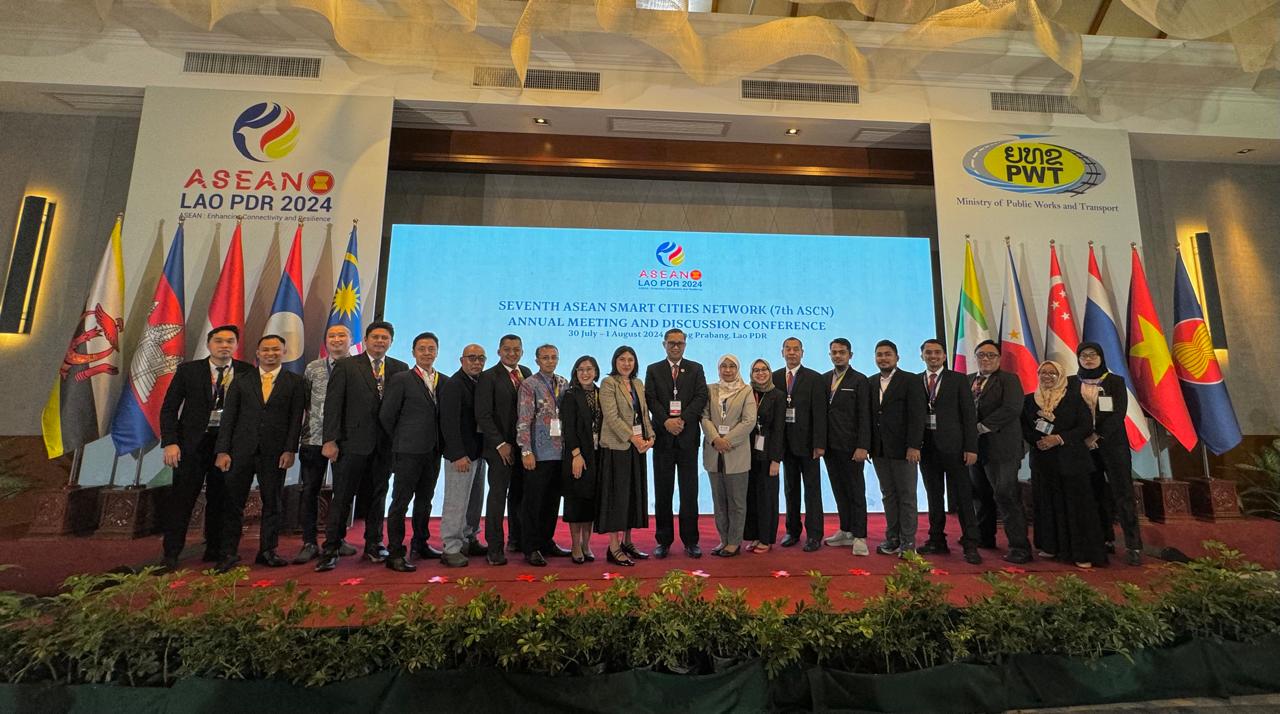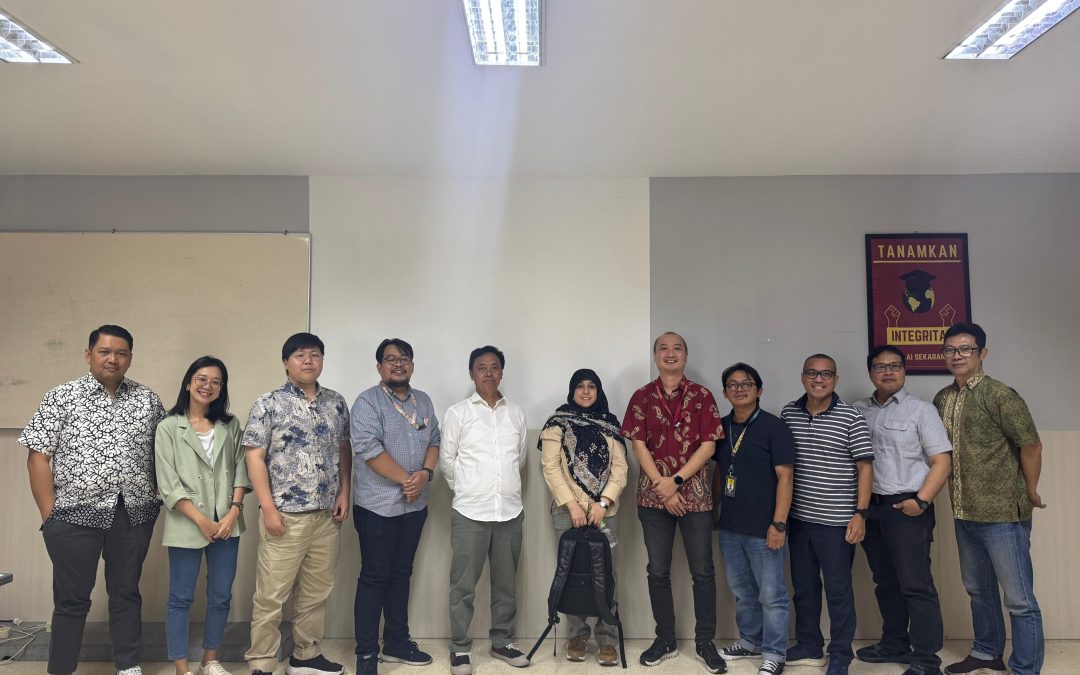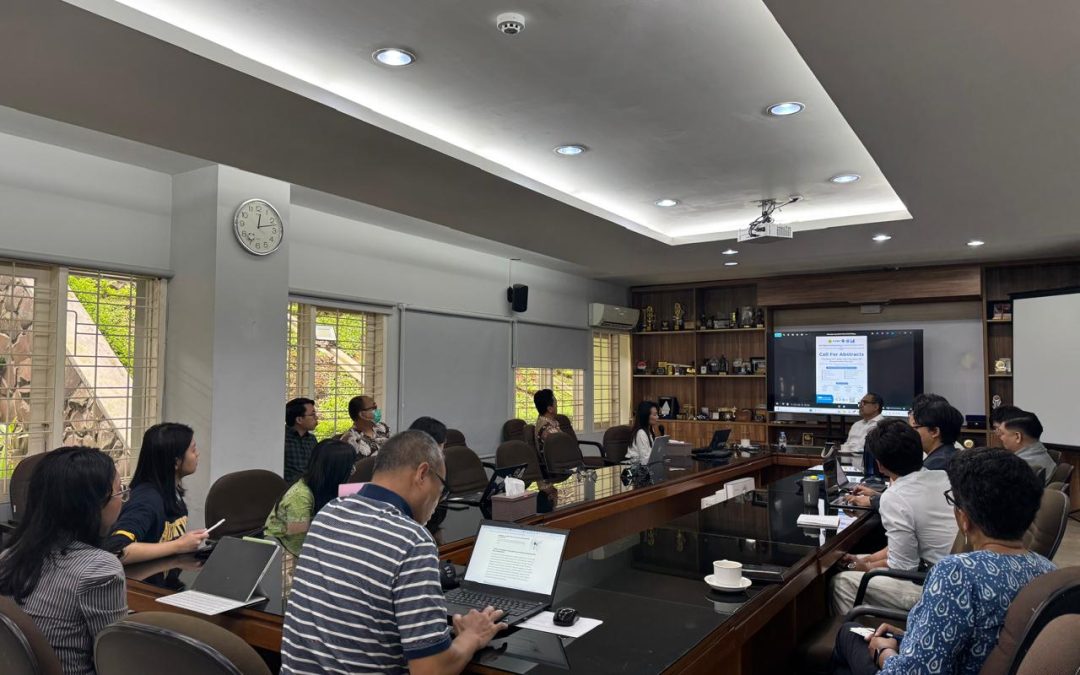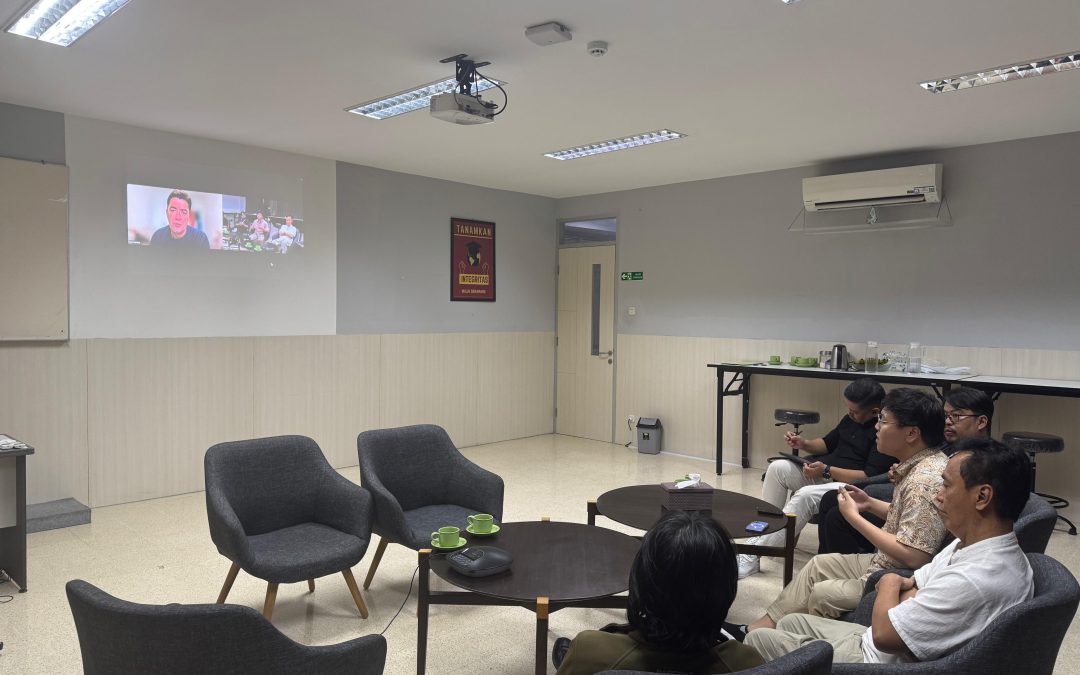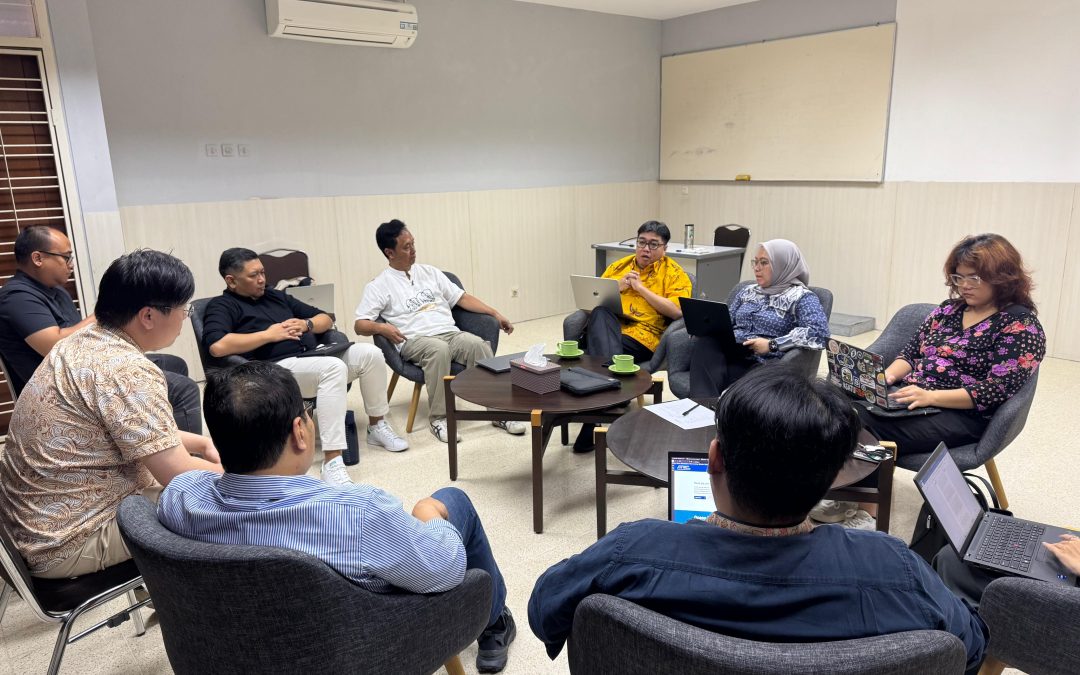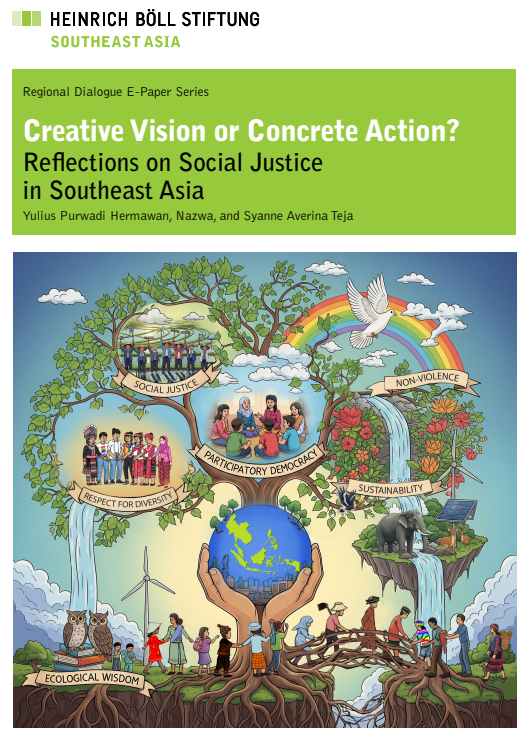The PACIS team poses with the Indonesian delegation.
On July 30, 2024, the Parahyangan Center for International Development (PACIS) study team accompanied the Indonesian delegation to the seventh annual ASCN meeting in Luang Prabang, Laos. ASCN was established in 2018 as a collaborative platform to accelerate the development of smart cities in ASEAN countries. Smart cities are seen as the most effective strategic approach to addressing the challenges arising from urbanization in ASEAN member countries.
The Indonesian delegation consisted of the ASCN National Representative (NR) from the Directorate General of Territorial, Urban, and Border Administration, Ministry of Home Affairs, and representatives from existing ASCN member cities, namely Makassar and Banyuwangi, as well as a representative from the new smart city, Sumedang. Representatives from Jakarta were not present at the meeting. Also accompanying the Indonesian delegation was the founder and CEO of ASECH, a Center of Excellence dedicated to supporting the development of smart cities in Indonesia.
The seventh ASCN annual meeting was chaired by Dr. Viengnam Douangphachanh, ASCN Chair, from Laos. Laos will chair ASEAN in 2024.
In the first session, Dr. Amran Jamaludin, Acting Director General of Territorial, Urban and Border Administration, delivered a report on ASCN’s progress since Indonesia assumed ASCN Chair in 2023. This was followed by a presentation from a representative from the Access Partnership on the Development of the ASEAN Smart City Investment Toolkit. UN Habitat then provided an update on the progress of the “Accelerating the Implementation of the ASEAN Sustainable Urbanization Strategy Phase I” project.
The ASEAN Secretariat presented a Monitoring and Evaluation report on the development of smart cities that are ASCN members. The report was compiled based on documents submitted by each smart city prior to the ASCN annual meeting. The report will be published as part of ASCN’s accountability.
The annual meeting then continued with presentations from smart city representatives. Specifically, three Indonesian cities have been members of ASCN since its inception in 2018: Makassar, Banyuwangi, and Jakarta. Each representative presented on the progress of projects implemented within the framework of smart city development. Challenges faced and follow-up plans were also presented at the annual meeting.
At the ASCN meeting in Laos, Sumedang joined as a new ASCN member. Sumedang Regency representative, Asem Dadang Darmawan, had the opportunity to present the projects implemented and the plans underway to realize Sumedang as a smart city.
ASEAN dialogue partners who have supported smart city development in ASEAN member countries had the opportunity to update on ongoing projects and future plans. The three dialogue partners specially invited by the Laotian government to attend the seventh annual meeting were the United States, Japan, and South Korea.
At the annual meeting, the ASEAN Secretariat presented a discussion agenda on Preparation for the ASEAN Community Vision 2045 and the ASEAN Connectivity Strategic Plan. The ASEAN Secretariat invited smart cities to contribute to the formulation of the ASEAN Community Vision 2045.
The National Representative (NR) of Malaysia, Datuk Saidatu Akhma binti Hassan, who will chair ASCN 2025, presented her presentation on plans to hold the eighth ASCN annual meeting in Malaysia. On the occasion, the Deputy Secretary-General for Sustainability, Planning & Environment, Ministry of Housing and Local Government of Malaysia invited ASCN members to attend the eighth ASCN meeting.

PACIS Team Participation
The PACIS study team was led by Yulius P. Hermawan, the PACIS Chair, and accompanied by Albert Triwibowo and Marshell Adi Putra, PACIS members representing the ASCN PACIS study team. PACIS’ participation in this meeting was part of a Community Service (Abdimas) activity based on a policy study being conducted within the framework of PACIS’s collaboration with the Directorate General of Territorial, Urban, and Border Administration, Ministry of Home Affairs.
In particular, the PACIS team had the opportunity to meet with representatives of Smart Cities from ASEAN member countries, the chairman of ASCN 2024 (Dr. Viengnam Douangphachanh), and the Chair of the ASEAN Connectivity Division of the ASEAN Secretariat. PACIS also specifically met with the vice president of K-ESE, a Korean company that is the focal point for the development of the Korea-Smart City Network as an implementing partner supporting the development of smart cities in ASEAN countries.

